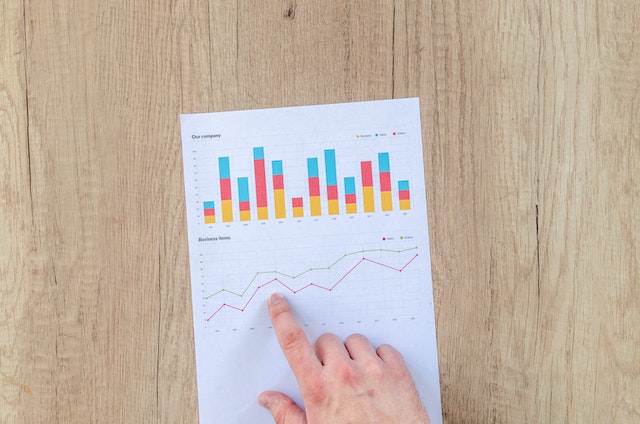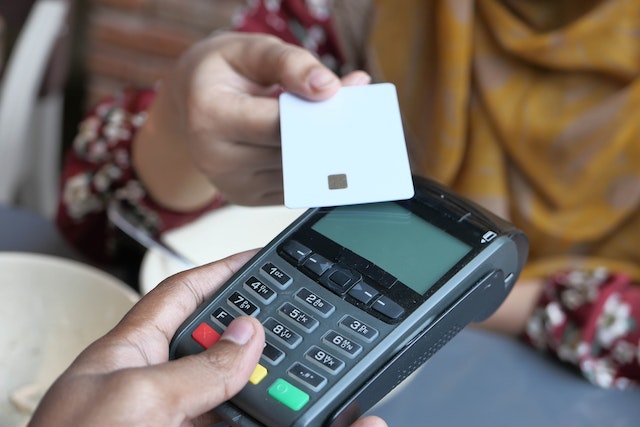Expense Tracker Apps: What to use in 2024?
Did you know that Canadians owed $1.7 in credit market debt for every dollar of household disposable income in 2020?
With all the stressors that life can throw at you, financial stress can be the most burdensome. Even if you generate a decent income, you still may find yourself wondering where all that money goes. Thus, it might be high time to get an expense tracker app.
In this article, we will discuss expense tracker apps, which give you the tools to budget and meet your financial goals.
Best Expense Tracker Apps in 2024
Top 5 Best Expense Tracker Apps
If you’re looking for an expense tracking app for iPhone and Android phones, look no further. All the following expense tracking apps are available for both iOS and Android operating systems. We’ve picked out a wide range so you can find the one most suitable for your individual budgeting needs.
1. Mint
Mint’s expense tracker allows you to connect your bank accounts, loans, and investments. You will be notified when bills are due when you are approaching spending limits, and when subscriptions increase. Mintsights tracks your net worth, spending, and budget to help you find opportunities to save.
And it’s free. Also available are the $0.99/mo ad-free version and $4.99/mo Mint Premium.
Your sensitive data is safe and protected with VeriSign, two-factor authentication, Touch ID, and 4-digit passcode.
Pros:
- 24/7 credit monitoring
- One of the best tracking apps for family
Cons:
- Not all banks allow Mint access
You may be interested: How to Save Money as a Student in Canada?
2. YNAB
You Need a Budget or YNAB is budget-focused. The app requires you to assign every available dollar to a category. YNAB offers resources like live workshops, articles, guides, a podcast, and an active online community to help you take control of your finances.
YNAB costs $14.99 a month or $98.99 a year. However, you can try it out first with a 34-day free trial.
The tracking app features the latest encryption technology, secure login measures, and additional security protocols.
Pros:
- A resourceful online community
- Helps you create a real-time budget
Cons:
- More expensive
- No bill tracking
3. Goodbudget
Goodbudget uses an envelope system to help you reach your financial goals. You will easily know how much money is set aside for each expense, and how much you are saving monthly.
Resources like podcasting, courses, and an online forum where you can chat with other users and staff.
The free version works well, but Goodbudget Plus is available for $7 monthly or $60 yearly with unlimited accounts and envelopes.
Goodbudget expense tracker uses 256-bit encryption for your sensitive information.
Pros:
- Interactive online forum
- Resource library
Cons:
- No investment resources or tools
- No credit score monitoring or net worth tracking
You may be interested: Frugal Living in Canada
4. Expensify
Expensify has expense tracker plans ideal for business expenses. It works with accounting and HR apps and utilizes a GPS mileage tracker for business travel.
The business plans include Free Plan, Collect Plan, and Control Plan, which cost $0/mo, $5/mo/user and $9/mo/user, respectively.
For individuals and self-employed, are the Track and Submit plans, which are both free.
Expensify offers two-factor authentication and is compliant with Privacy Shield and GDPR requirements.
Pros:
- Receipt scanning
- Best expense tracking app for small or midsize businesses
Cons:
- The Free Plan necessitates the use of the Expensify credit card
5. PocketGuard
PocketGuard shows you precisely how much money you have available with the My Pocket tracker. After linking your credit and debit cards, it will import your transaction data automatically. PocketGuard finds you personalized offers and subscription tracking to help save you money.
All these features come with the free version. PocketGuard Plus has a few extra features and is priced at $7.99 monthly, $79.99 yearly, or $99.99 for life.
PocketGuard expense tracker uses 256-bit SSL encryption, biometrics, and PIN code for added security.
Pros:
- Easy to use
- The free version works well for basic budgeting tools
Cons:
- No manual options
What Are Expense Trackers?
Using an expense sheet and a piggy bank just doesn’t cut it for some of us. Most of us have a hectic lifestyle where we are unable to properly look after our finances. Or the thought of math equations and filling out a budget may make your eyes cross. That is where an app for finances comes in. It can crunch the numbers for you!
Expense trackers are money tracker apps that monitor either personal or business expenses. Many people use a tracking app to make a budget, analyze where they spend money, and learn how to allocate funds more efficiently and effectively. An app allows budgeters to see approximately how much money they have available. This then allows them to curtail spending if necessary.
Best of all, you can get a phone tracking app for free!
How Do Expense Trackers Work?
Some savings trackers offer a monthly bill tracker if you have difficulties remembering to pay your bills on time. Additionally, the expense tracking app may scour other companies for deals, showing you ads that can give you a lower price for the services you use.
Budget trackers typically work by being linked to your accounts and sending alerts based on your budget goals. Apps may also include charts and graphs to give you a better financial picture.
Is Getting an Expense Tracker Worth It?
If managing your expenses is particularly difficult, or if you have financial goals you’d like to achieve, getting one of these spending tracker apps is worth it.
Having the best personal finance software available at your fingertips will make budgeting simpler, saving you more money in the long run.
Finishing Thoughts
Picking out the right expense tracking app for you depends on your goals.
Mint is a great app for those that want to connect a lot of accounts, which is ideal for families, whereas YNAB helps empower those who want to learn to budget and create empowering habits to keep it going sustainably.
Goodbudget allows those who have trouble allocating enough money every month through an easy envelope system and Expensify is ideal for small to mid-size businesses to track their expenses. Lastly, Pocketguard automates the process for you to make it easy as pie.
What we recommend is setting your priorities straight, which in turn will make it easier for you to filter the best expense tracker apps for you.
FAQ
The best overall free app is Mint, the best app for beginners is Goodbudget, the best app for serious budgeters is YNAB, and the best app for businesses is Expensify.
Get an expense tracker that is tailored toward your financial goals. Many of the expense trackers in our list have free options available.
PocketGuard is the best app for daily expenses because it has the most accurate, up-to-the-moment information due to its automated processing.










